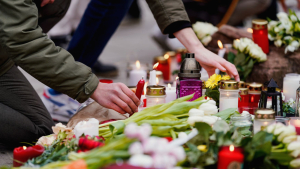Poor people are often affected by mental illnesses such as anxiety disorders, depression or schizophrenia. At the same time, they are less likely to seek professional support. That is why they actually need easy access to psychotherapy. However, the opposite in Germany is how psychologists from the Free University of Berlin report in a study: Therapists are rather rejected by people with low socio -economic status.
Helen Niemeyer and Christine Knaevelsrud recruited 504 outpatient psychotherapists for their online study. They read a series of fictitious requests via an online contact form. After each message, you should indicate how likely you would be to offer treatment to the person. The social status of those seeking help was manipulated: in texts that were supposed to signal a higher level of salary and education, the inquirers introduced themselves as an engineer, pharmacist or surgeon; in the others, on the contrary, they worked as a cashier, florist or cleaner. For the low socioeconomic status, shorter sentences, simpler words and proverbs were also used in the news instead of more complex formulations.
In the study, people whose profession and language had to conclude on a less educated background had a four percent less likelihood of maintaining a therapy place than those with medium to high social status. The disorder also played a role. In the case of bulimia, for example, shift in shares had a greater effect than in depression or social phobia. Psychoanalysts were more key than psychodynamic or behavioral therapy colleagues. The district, in which the practices of the participants were, also had an impact: therapists who practice in socially disadvantaged districts are apparently less interested in the background of the request.
The difference in the rejection rate may seem small. However, Niemeyer and Knaevelsrud warn that the bias of therapists towards some clients can aggravate existing disadvantages for poorer people. Thus, the effect coincides with an already less pronounced "health literacy" of people with less education, i.e. a lower knowledge of mental disorders. All this is happening against the background of an acute shortage of therapy places. An awareness of one's own selection mechanisms can help therapists to rethink their selection practice.



















